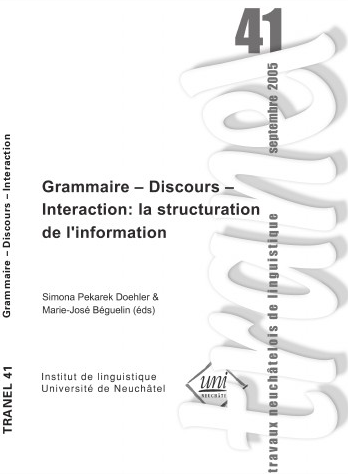Une étude sur les premières expressions référentielles. Le cas des pronoms
DOI :
https://doi.org/10.26034/tranel.2005.2702Résumé
Our purpose here is to address the question of the relation between grammar and discourse through the lens of early language acquisition, and more specifically, the acquisition of 3rd person pronouns and anaphora. According to previous research in the field, at first pronouns have a deictic value. This interpretation is based on studies of narratives produced by children that are over 3 years old. However, it is important to take into consideration that children begin to use this devices much earlier and within dialogues. After discussing the main arguments in favour of a deictic interpretation, this paper proposes a series of analytical approaches set to allow a complex interpretation of the referential value of early third person pronouns. The analysis of a corpus of dialogues of children aged between 1;8 and 3 leads us to conclude that, contrary to dominant interpretations, these forms are first learned as anaphoric devices, scaffolded by the dialogical relationship.Téléchargements
Publié-e
01-09-2005
Comment citer
Salazar Orvig, A., Hassan, R., Leber-Marin, J., Marcos, H., Morgenstern, A., & Parès, J. (2005). Une étude sur les premières expressions référentielles. Le cas des pronoms. Travaux neuchâtelois De Linguistique, (41), 15–31. https://doi.org/10.26034/tranel.2005.2702
Numéro
Rubrique
Article thématique


